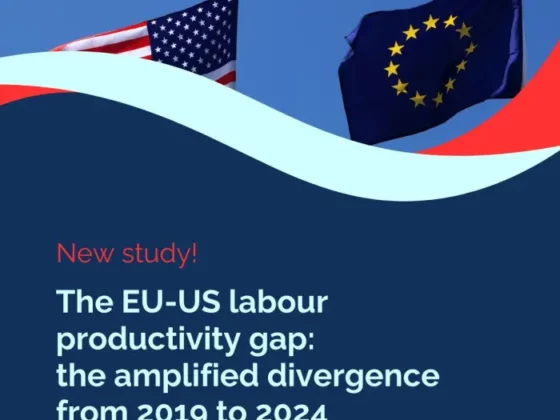
For a number of years now, hotels have offered free cancellation on bookings, a concept that was predominantly introduced by online travel agents (OTAs) as part of a strategy to disrupt the market. This became more prevalent during the pandemic and has stuck around since. While it is clearly a positive for bigger hotels, the benefits to smaller hotels are more nuanced. There is also a debate about whether the increase in speculative bookings around big events is a net positive or negative to hotels.
The size of the hotel matters
For big hotels, the benefits of offering free cancellation are obvious. As Ruth Whitehead, COO of property management system provider Eviivo explains, many of these larger hotels will often have rooms left over at the end of a day. Therefore, if they end up having a small number of last-minute cancellations the effect to their bottom line will be minimal. The drawback of having a few last-minute cancellations is outweighed by the fact that offering free cancellation often leads to more bookings as consumers will feel more comfortable confirming a booking with free cancellation.
For smaller hotels, a last minute cancellation can have a big impact on the bottom line. A small boutique hotel with 10 rooms or fewer will feel the effect of one room which it thought it had filled being empty as a result of a late cancellation. It can also be more difficult for a hotel of this size to fill the room on short notice. Despite this, Whitehead believes that offering free cancellation is still worth it. She also thinks that there are a number of things that these smaller businesses can offer to upcoming guests which will make them less likely to cancel.
“One of the key things is to have good guest communication ahead of the stay, because if the guest understands that you’re a small property and a cancellation is going to make a big difference to you it may make them consider it.
“A business can send a pre-arrival email or WhatsApp message that goes out to guests, explaining this to them as well as offering tips about things that are going on in the area. If somebody’s a genuine guest, and they engage with you, then you’re fairly confident that they’re going to stay,” she says.
Whitehead continues: “If you get no engagement you can have a communication that goes out in advance that says something like we’re a small operator, we appreciate plans change but if you do know that you’re not going to be able to make it, please let us know as soon as possible, so they’re not hanging on right until the last possible minute.”
Whitehead also proposes the idea that these smaller businesses can offer free cancellation conditionally. For example, a business could put rules around when they offer flexible cancellation and when they do not, similar to dynamic pricing. It could also only be offered as an early bird discount, so a business would offer flexible cancellation up until a certain percentage of its rooms are booked at which point it would no longer be offered.
What is the right time frame?
Free cancellation does not always mean that a guest can cancel up until the point they were due to check in. Most hotels and short term rental places have a deadline for when a guest can cancel. According to data from Eviivo two thirds of hotels offer a free cancellation policy of between one and seven days, while only a small percentage offer free cancellation up until the time of arrival.
According to the data, the sweet spot for free cancellation is between one and three days before. Eviivo found that of properties with an occupancy of over 80% over a period of two years, over half of the sample offered a cancellation policy of 1-3 days too. It also found that there is a direct correlation between overall occupancy and the flexibility of the policies on offer. In the hotel market there is a 12% difference in occupancy between properties that offer a flexible policy of one and three days and those that only offer non-refundable rates. However, the numbers state that there is no advantage to offering free cancellation up until the time of arrival. Then there is the issue of people booking rooms in the hope of using them rather than expectation.
Speculative bookings
Speculative bookings are a big reason why a guest may want free cancellation. A speculative booking can be defined as a booking made early in the hope that the person making the booking will be able to attend an event near the hotel, locking in a price before it rises. For example, a football fan may want to book a hotel in or around Wembley Stadium on the weekend of the FA Cup final in the hope their team is playing in the game, safe in the knowledge that if the team does not make it, they can cancel the hotel and lose nothing.
This can be a problem for two reasons. Firstly, it can lead to last minute cancellations, which could leave a hotel with empty rooms on a day when they would expect to be full. Secondly, it can mean that hotels actually miss out on money as without the free cancellation a potential guest may wait until it is confirmed that they are attending the event in question meaning they have to pay a higher room rate.
However, Whitehead states that this can offer an opportunity to hotels. “There’s two ways of looking at it, there are hoteliers who will not offer free cancellation because it’s a massive event and they want to be completely full. There are other people who think if a guest cancels, they can potentially put more money on the room rate closer to the time and they’ll fill the room anyway, because there’ll be no availability in town for the concert or football match that’s going on. It’s down to the person who knows how they want to operate their business,” she explains.
Overall, Whitehead believes that free cancellation in its current state is here to stay. Similar to free Wi-Fi, offering cancellation is now an expectation of guests and if you do not offer it then it can be a deterrent to potential guests. Whitehead also believes that there is no scope for it to go any further either.
“I think it might become more prevalent in the STR space. They seem to be behind where hotels are and I think there’s potential for them to change. But I think we are where we are and it’s about tweaking and making it finer, rather than making any kind of seismic change,” Whitehead concludes.






